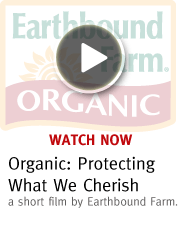Why Grow Organic
The organic movement has grown from its roots in small-scale agriculture and farmerís markets to a full-blown revolution in the mainstream of the publicís eye in many countries globally. Instead of relying on pesticides, synthetic chemicals and genetically modified seeds and plants, organic farming approaches solving agricultural challenges by using natural ingredients and a balanced approach to cultivation and land management. In fact, this is the way it was prior to the mid-20th century when chemical products were developed for large scale agriculture. In 2001 the total market value of certified organic products was $20 billion dollars. By 2007 that number had more than doubled than $46 billion.
From the farmerís perspective there are considerable benefits in moving to organic practices. The Journal of Sustainable Agriculture found that organic farms are more profitable than traditional farms due to the cost savings of not using pesticides and synthetic fertilizers, as well as the higher prices received for their products. As well, numerous scientific studies have found organic farms use less energy (resulting in more saving costs) and retain their topsoil during extreme weather much better than farms using artificial solutions. Organic farms have also proven to be extremely resilient during drought conditions.
With fewer chemicals to be found in organic food, consumers enjoy a healthier lifestyle choice. By reducing the energy and chemical impact on farming, consumers are also able to use their purchasing power to support sustainable farming practices and have a tangible impact on reducing global warming. Eliminating the synthetic nitrogen used in chemical fertilizers has been shown to decrease fossil fuel consumption by one-third. As well, the soil enriched by organic fertilizer retains a greater amount of carbon in its organic matter than conventionally treated soil.
We invite you to learn more about the world of organic growing, its farming practices and the rewards that come with using certified organic fish fertilizer by exploring further.
An excellent resource data base of information is found at the Organic Trade Association web site area for Producers/Farmers. Explore!!
http://www.howtogoorganic.com/index.php?page=producers |



